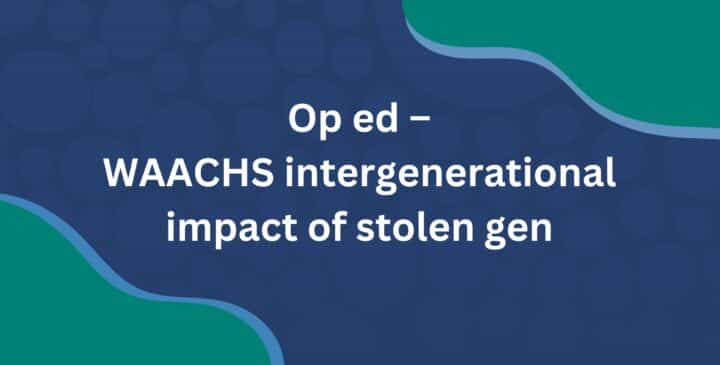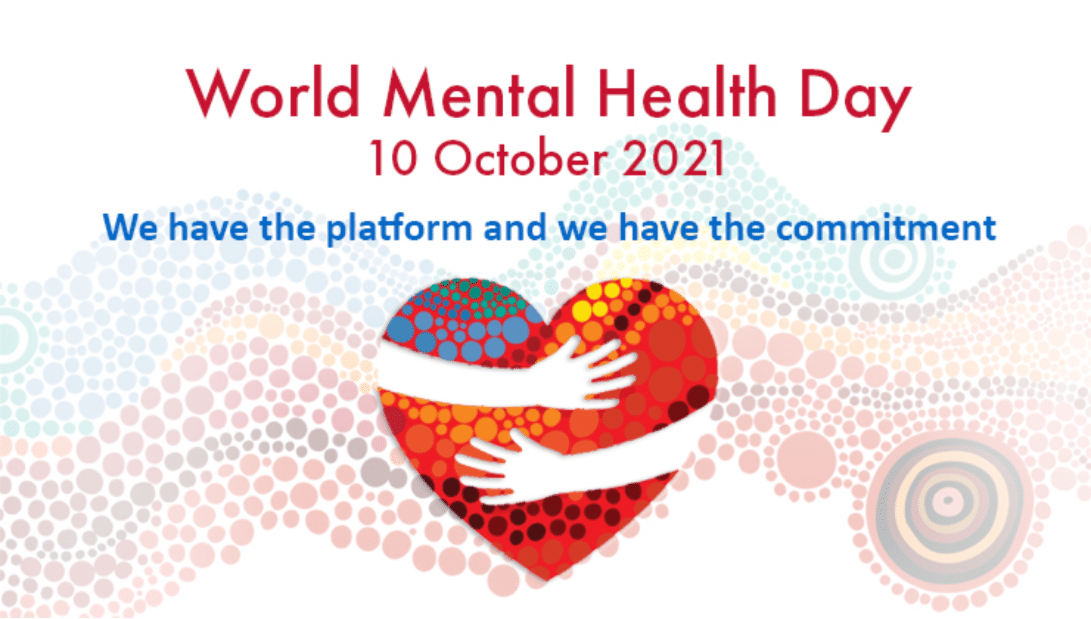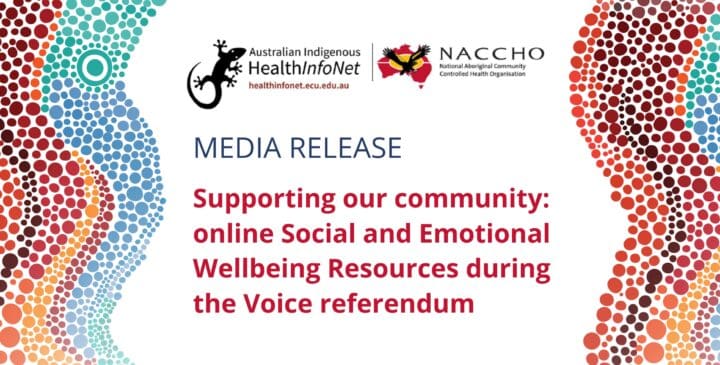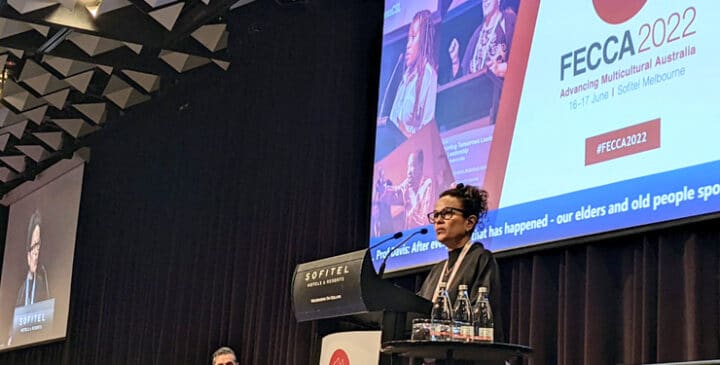

‘We have the platform and we have the commitment’ NACCHO’s message on World Mental Health Day
On World Mental Health Day, the National Aboriginal Community Controlled Health Organisation (NACCHO) emphasises that the commitment in the National Agreement on Closing the Gap needs continued funding to support critical reform and close the mental health gap. The funding will help shape mental health policy and program delivery for the coming decades.
In Australia, the suicides rates in Aboriginal and Torres Strait Islander communities continue to rise and the COVID-19 pandemic highlights the urgent need to develop and invest in culturally appropriate Social and Emotional Wellbeing (SEWB), suicide prevention, aftercare, postvention and mental health services.
NACCHO Chair Donnella Mills states, “Our communities are disproportionately represented in mental health statistics and are more than twice as likely to die by suicide compared to other Australians.
“The concept of social and emotional wellbeing is essential. It is central to our ways of being. It recognises our connection to Country, community, and culture. To family and kinship. To spirituality and our ancestors. It recognises that a person’s wellbeing is influenced and impacted by past events, traumas, and government policies. It is a term that encompasses both mental health and mental illness.
“Reforms need to be made in alignment with the National Agreement on Closing the Gap. The National Agreement commits our Country to a new direction and is a pledge from all governments to fundamentally change the way they work with Aboriginal and Torres Strait Islander communities and organisations.”
“We have the platform, we have the commitment, and we have the evidence to support Aboriginal Community Controlled Services provide the best quality of care for our communities,” said Ms Mills.
NACCHO has advocated for a collaborative and holistic approach to the COVID-19 vaccination rollout that has demonstrated effective world-leading results and Ms Mills said, “The ACCHOs, in partnership with governments, lead a highly effective response to the COVID-19 pandemic and continue this work with the current outbreaks and rollout strategy. This is what a strong, empowered, community-controlled sector does.
“There is a considerable shortage of Aboriginal and Torres Strait Islander psychiatric leadership and trained mental health professionals, particularly clinical psychologists. New funding measures are required to attract and retain these professionals within ACCHOs.”
NACCHO believes sustained funding support for Aboriginal community-controlled SEWB, suicide prevention, aftercare, postvention and mental health services are critical. “We know Aboriginal leadership, self-determination, and community control by and for Aboriginal and Torres Strait Islander people works. We will not stop advocating for appropriate funding to Aboriginal Community Controlled Health Organisations (ACCHOs) until the Mental Health Gap is closed.
Gayaa Dhuwi (Proud Spirit) Australia CEO Thomas Brideson said, “The strength and resilience of Aboriginal and Torres Strait Islander people is represented through our survival. Our community-controlled services are central to improving mental health, social and emotional wellbeing, and suicide prevention. Empowerment of individuals, families and communities are the cornerstone of the soon to be released National Aboriginal and Torres Strait Islander Suicide Prevention Strategy developed by Gayaa Dhuwi (Proud Spirit) Australia.
“The mental health and suicide prevention of Aboriginal and Torres Strait Islander Peoples was for the first time a listed priority in the 5th National Mental Health and Suicide Prevention Plan, 2017. This is our reality and improvements are urgently required. Improvements in alignment, capacity, equity and longevity in mental health care across all of our communities will be the measure of success.
“This year’s theme, Mental health care for all: let’s make it a reality is an ever-present priority across our communities.”
WHO’s World Mental Health Day’s slogan “Mental health care for all: let’s make it a reality” and will showcase the efforts made in some of these countries and highlight positive stories and initiatives.

